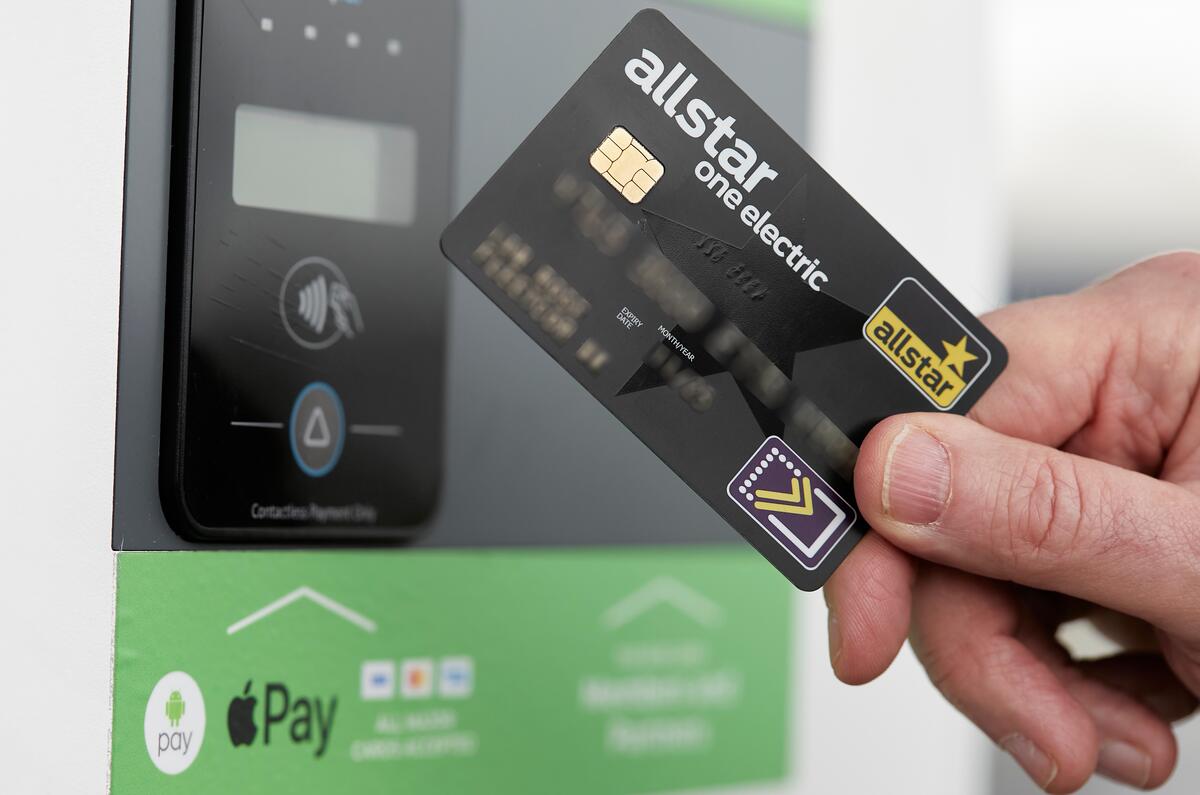Allstar Business Solutions has doubled the customer base for its electric fuel card since the start of 2022, as HMRC-approved mileage rates lag further behind spiralling charging costs for the UK’s fast-expanding population of electric company cars and vans.
Renewed tax incentives since 2020 have revived the market for electric company cars. EVs became the most popular option for business contract hire orders in the first quarter of 2021, according to the latest British Vehicle Rental and Leasing Association (BVRLA) quarterly leasing report, accounting for 43% of the overall volume. That’s twice the penetration in the private sector.
However, reimbursement is increasingly challenging as rising energy prices drive up the cost of charging. Drivers can claim the Advisory Electric Rate (AER) of 5p per mile for charging an EV, regardless of its size and efficiency, which has been criticised for leaving drivers out of pocket.
Public networks began raising tariffs last autumn, and consultancy firm Auxilione is projecting Ofgem’s incoming energy price cap will push unit costs up to 52p per kWh for 20 million households from October. That’s almost a three-fold increase in charging costs compared with the UK average in 2021.
At 52p per kWh, even smaller cars like the new Kia Niro EV would cost 14p per mile to charge at home, or up to 18p per mile using motorway rapid chargers. Fleets have to prove that any adjustments are valid to avoid tax implications.
The Allstar One Electric card is part of a portfolio designed to consolidate drivers’ charging sessions into a single report for simpler, more accurate reimbursement – including direct to the utility company if the vehicle is plugged in at home.
This now includes access to Gridserve’s 160 Electric Highway and Electric Forecourt locations, extending the card’s coverage to 7300 charging points, 95% of which are classified as high-speed units.
Tom Rowlands, Allstar’s managing director of global EV Solutions, said the influx of new customers ranges from sole traders to the large fleets, which often report that infrastructure is a “critical barrier” to further electrification.
“[Our card] not only opens the door for businesses to adopt EVs into their fleets but [also] helps businesses manage payments, particularly in times of financial uncertainty,” he explained.
“It enables users to see the actual cost of recharging, whether at home, on the road or at work, and so fleet operators or those in charge of the company’s fleet are able to pay the tariffs at the correct rate, rather than the AER.”






Add your comment